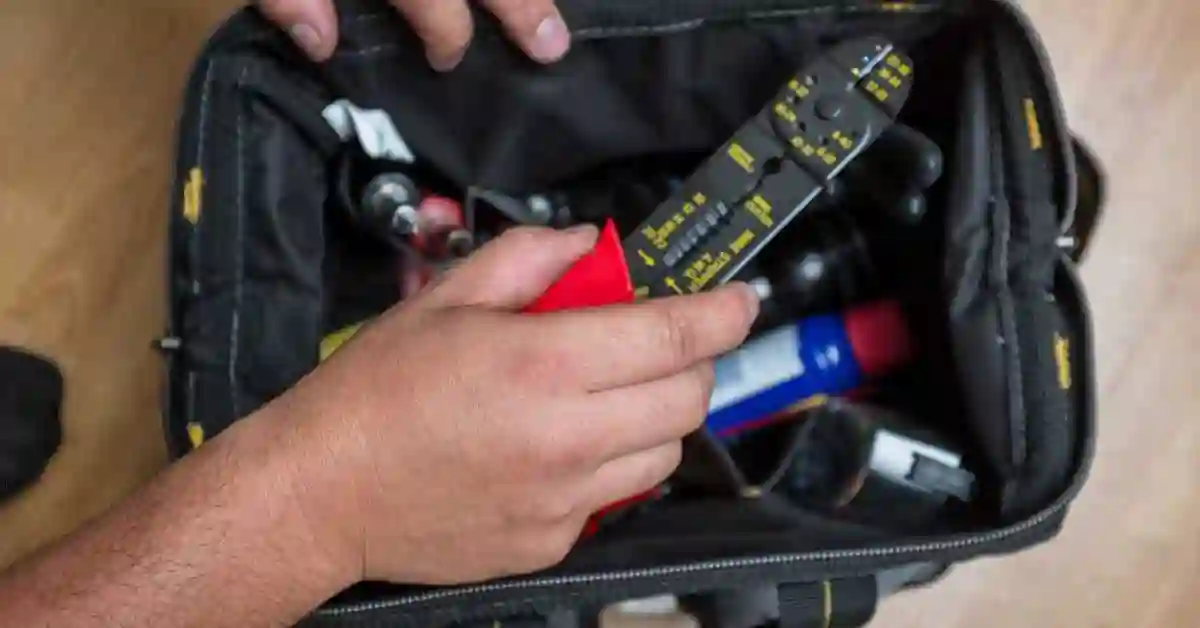
HVAC Hand Tools
Screwdrivers
A set of screwdrivers is indispensable for any technician. Make sure to have a variety of types and sizes, including Phillips, flathead, and Torx, to handle various fasteners.
Pliers
From gripping to cutting, pliers are a must-have. Keep a range of pliers in your toolbox, such as needle-nose, lineman's, and tongue-and-groove.
Wrenches
You'll need an assortment of wrenches, like adjustable, pipe, and ratcheting, to tighten and loosen different types of nuts and bolts. A torque wrench is also helpful for achieving the correct tension.
Pipe Cutters
When working with copper, PVC, or other tubing, pipe cutters offer clean, precise cuts. Opt for a ratcheting or auto-cutting design for added efficiency.
Tin Snips
Tin snips are essential for cutting sheet metal and ductwork. Keep straight, left, and right-cutting varieties handy for versatile cutting capabilities.
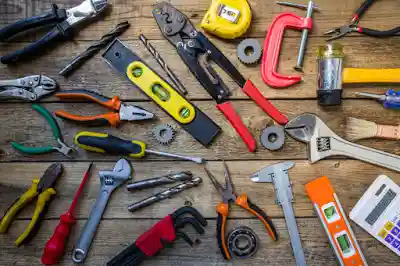
Try our HVAC Software to help manage your business
Measurement and Diagnostic Tools
Multimeter
A multimeter is crucial for diagnosing electrical problems in HVAC systems. Invest in a reliable, user-friendly digital multimeter with multiple functions like voltage, current, and resistance measurement.
Thermometer
An infrared or probe thermometer helps measure air temperature, refrigerant line temperature, and more. Choose a high-quality model for accurate readings.
Manifold Gauge Set
This essential tool helps measure refrigerant pressure and temperature, allowing you to diagnose issues, charge systems, and check for leaks.
Anemometer
An anemometer measures air velocity, which is critical for testing airflow and ensuring proper system performance.
Combustion Analyzer
This device measures combustion efficiency, flue gas temperature, and oxygen, carbon monoxide, and carbon dioxide levels, helping to optimize furnace performance and safety.
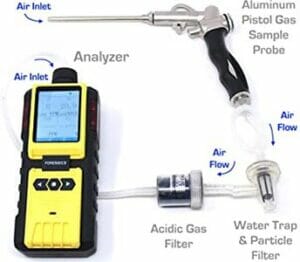
Just starting out? Try our free HVAC Estimate Template
Power Tools
Cordless Drill
A cordless drill is a versatile power tool that can speed up tasks like drilling holes and driving screws. Choose a model with multiple speed settings, a long battery life, and various attachments.
Reciprocating Saw
Cutting through pipes, wood, and metal is a breeze with a reciprocating saw. Opt for a cordless model with variable speed control and an ergonomic design for maximum convenience.
Vacuum Pump
When servicing refrigeration systems, a vacuum pump is essential for removing contaminants and moisture. Invest in a high-quality, durable model with a suitable capacity for your needs.
Rotary Hammer Drill
For drilling into concrete, brick, or stone, a rotary hammer drill is a must-have. This powerful tool can make quick work of even the toughest materials.
Electric Shear
An electric shear can cut through sheet metal, ductwork, and other materials with ease. It's faster and more efficient than manual tin snips, making it a valuable addition to your toolbox.
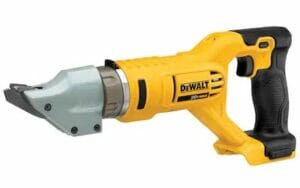
Visit our HVAC duct calculator article to help when needed
Safety Equipment
Gloves
Protect your hands from cuts, burns, and other hazards with a sturdy pair of work gloves. Look for insulated, cut-resistant gloves specifically designed for HVAC work.
Safety Glasses
Safety glasses shield your eyes from flying debris and other hazards. Choose a comfortable pair with anti-fog and scratch-resistant lenses.
Ear Protection
Prolonged exposure to loud noises can cause hearing damage. Wear earplugs or earmuffs when working with noisy equipment.
Respirator
Protect your lungs from dust, fumes, and other airborne hazards with a respirator. Select a model that filters out the appropriate particles for your line of work.
Hard Hat
A hard hat is essential when working in construction zones or other hazardous environments. Choose a model that meets safety standards and offers a comfortable fit.
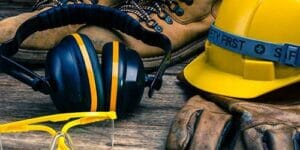
See how your HVAC salary compares to industry averages
Miscellaneous Tools
Ladders and Platforms
Accessing high places is a common task in HVAC work. Invest in a sturdy ladder or platform that meets your height requirements and safety standards.
Flashlight
A reliable flashlight is invaluable when working in dark or poorly lit areas. Opt for a hands-free headlamp or a compact, high-lumen flashlight.
Duct Knife
A duct knife is essential for cutting flexible ductwork and insulation. Choose a model with a sharp, serrated blade and a comfortable handle.
Wire Strippers
Wire strippers help you strip and cut electrical wires with ease. Look for a model that handles various wire sizes and includes a wire cutter.
HVAC Tape
Duct tape, aluminum foil tape, and electrical tape are all useful in different HVAC applications. Stock up on high-quality tapes designed specifically for your needs.
Conclusion
These are the top 50 essential HVAC tools that every service technician should have in their toolbox. Investing in high-quality tools and safety equipment will make your job easier, more efficient, and safer. Always stay up-to-date with the latest tools and technologies to keep your skills sharp and improve your work performance.
FAQs
Q1: How often should I replace my HVAC tools?
A1: Replace tools when they become worn, damaged, or outdated. High-quality tools should last a long time with proper care and maintenance.
Q2: Are there any specialized tools for specific HVAC tasks?
A2: Yes, there are specialized tools like refrigerant recovery machines, leak detectors, and tubing benders designed for specific HVAC tasks.
Q3: How can I keep my tools organized and easily accessible?
A3: Invest in a quality toolbox, tool belt, or tool bag to keep your tools organized, protected, and easily accessible. Also, review our article on HVAC van organization
Q4: Do I need different tools for residential and commercial HVAC work?
A4: While many tools are applicable to both types of work, some tasks may require specific tools designed
for commercial or residential HVAC systems. Be sure to research and invest in the appropriate tools for the type of work you perform.
Q5: What should I consider when choosing an HVAC tool brand?
A5: Consider factors like tool quality, durability, ease of use, and warranty when choosing a tool brand. Research reviews and seek recommendations from fellow professionals to find a reputable brand that suits your needs.
Q6: Can I use regular hand tools for HVAC work, or do I need specialized HVAC tools?
A6: While many standard hand tools can be used for HVAC tasks, there are specialized HVAC tools designed specifically to make your work more efficient and precise. It's a good idea to invest in a mix of both general-purpose and specialized HVAC tools for optimal performance.
Q7: How can I stay informed about the latest advancements in HVAC tools and technologies?
A7: To stay up-to-date with the latest tools and technologies in the HVAC industry trends, follow industry blogs, attend trade shows, participate in online forums, and network with fellow professionals.
Q8: Are there any certifications or training programs for using specific HVAC tools?
A8: Yes, some HVAC tools and equipment may require specific certifications or training for safe and effective use. Check with manufacturers or professional organizations to see if there are any recommended courses or certifications for using certain tools.
Q9: How can I maintain my HVAC tools for a longer lifespan?
A9: Proper maintenance is crucial for extending the life of your HVAC tools. Keep them clean, well-lubricated, and protected from moisture and extreme temperatures. Store them in a dry, secure location and periodically inspect them for signs of wear or damage.
Q10: Are there any essential HVAC tools that can help improve energy efficiency in HVAC systems?
A10: Tools like combustion analyzers, infrared thermometers, and anemometers can help you identify areas for energy efficiency improvements in HVAC systems. By diagnosing issues and making necessary adjustments, these tools can contribute to more energy-efficient systems and lower energy costs.
